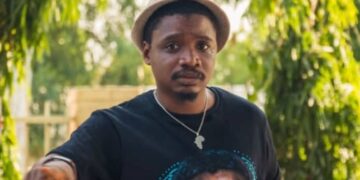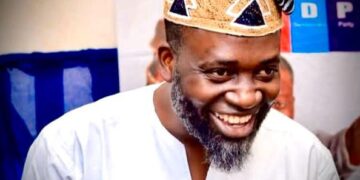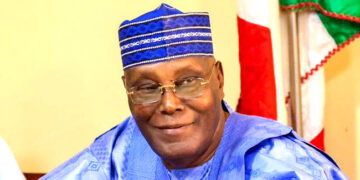![]()
By: Olufemi Shodunke
For two weeks, I shuttled between two provinces in Canada – Alberta and Ontario. The long-distance trips required me to travel by air as, in the alternative, I would need several days to arrive my destination by road. However, at the Calgary International Airport (YYC), Alberta, as I stood in queue, after the last checking by WestJet airline officials, to board the aircraft to Pearson International Airport (YYZ) in Toronto, Ontario, my thoughtfulness forayed into the passengers ahead of me. As I surveyed them in my conscientious mind, I recalled two incidents that prior agitated my mind where I sat, in pensive mood, some minutes ago waiting to board. One, the airport crises that involved popular Nigerian fuji musician, Ayinde Marshal (KWAM 1) with Value Jet, and Comfort Emmanson Bob on Ibom Air. The second issue was racism and discrimination in our society, particularly in Canada where I live.
From my profound reflection, everyone standing ahead of me must be concerned with safety on boarding the aircraft and landing at our destination in peace. No one had the time to boast of who he or she was (status) in life, profession, place of origin, race, colour and ancestry. Among those on queue were, possibly, doctors, engineers, judges, lawyers, factory workers, care givers and shoe repairs. Also, among us were Christians, Muslims, Hindus, and indigenous worshippers, to mention a few. I did not hear anyone utter “do you know I am?”
In addition, I noticed quite well that if any passenger was prevented from boarding the aircraft, unlike the KWAM 1 scenario at the Nnamdi Azikwe Aiport in Abuja, such a passenger can not have access to move closer to the aircraft like KWAM 1 attempted to do. Furthermore, the passenger, by the arrangement, has been shielded from moving closer to stand in the front to prevent the aircraft from taxiing to its destination. Honestly, none of the air hostesses spoke harshly. They were respectful and full of smile, which can be translated to mean “you are welcome and valued on our trip.” The passengers, too, in return accorded them respect and also as fellow passengers we treated ourselves with kindness, even where one’s luggage inadvertently hit another person. “Hey, I apologise,” that’s what I heard someone said to another.
Moreover, no one ask us to switch off our phones, and it was a domestic flight like the Comfort incident that put Nigeria on a bad reputation spotlight, which led to the lady’s embarrassment and violation of her self-respect and inherent dignity. Indeed, Nigeria should step up its air technology to the extent that passengers need not switch off their phones during flights. By now, all parties involved, in the Nigeria scenes, would have learnt their lessons on the need to be patient with one another.
Quite significant observation, in line with my troubled mind, was that the passengers were of different races and color: Whites and Blacks. Where I stood staring ahead of me, taking into apt consideration the physiognomic look and accentual expressions of the array of people ahead of and behind me, I could see Indians, Blacks (of African, Canadian and Caribbean descents), Chinese, Spaniards, Aboriginals (indigenous people of diverse tribes) and many more under the general appellation of White and Black. Among us were young boys and girls in company of their parents and guardians. No one, in all honesty, was concerned about our races and colours, or place of origin and ancestry. Our major concern was safety and safe arrival at our destination.
As a matter-of-fact, for the first time since I have been travelling by air, I sat in a unique seat in the 180-capacity aircraft. I was in the middle of two White folks. They were women. I had taken my seat first before they arrived. As they took their seats, my race or color did not cross their minds (and mine too) as they exchanged greetings with me. While the lady on my right exchanged few talks with me and slept, the one on the left spoke with me for some minutes before we both concentrated on our readings. I later engaged in deep meditation of how God has created all of us together – not minding our race, color, place of origin, and religion – as children under His authority and control who must live together without racism or discrimination.
Surprisingly, throughout the approximately 2,689 kilometers (1,671 miles) journey in the sky, no single passenger complained to the air hostesses of removing himself or herself from the “chosen” neighbours destiny placed beside him or her. Under such situation, safe arrival was the main concern of everyone. If this experience could be transformed into our real life in the society in general, we would not engage in racism and discrimination against one another in our daily encounter with people, in policy making, and decisions by everyone, including you and I, members of Parliament, office administrators, and decision-makers like lawyers and judges in our tribunals, boards, and courts, for instance, who daily implement the laws enacted against harassment, bully, racism and discrimination!
Of course, my return to Alberta, after the purpose of my trip through Edmonton airport, was the same, which gave me a deeper reflection about who is indeed the discriminator discriminating against others in our society? Definitely, it is you and I, and if there is any lesson learnt from this journey, it is that we need to seriously begin to see ourselves more as one family, without undue consideration for race, colour, and place of origin in our decision-making. Sincerely, it is time, I am strongly advocating, that we should live in harmony and peace with one another without displaying racism and discrimination. It is morally and socially wrong, and ungodly to do so.
Finally, I must confess that I decided to publish this opinion, with the hope that someone will pronto change his or her mind, in view of my unpleasant discriminatory experiences over the years, particularly in Canada, a supposed egalitarian society where equality, fairness and justice should reign in line with extant laws of the land.
Olufemi Shodunke, a community Chief as the Baaroyin of Igbeinland in Nigeria, is an international journalist and writer, based in Ontario and Alberta provinces, in Canada.

























